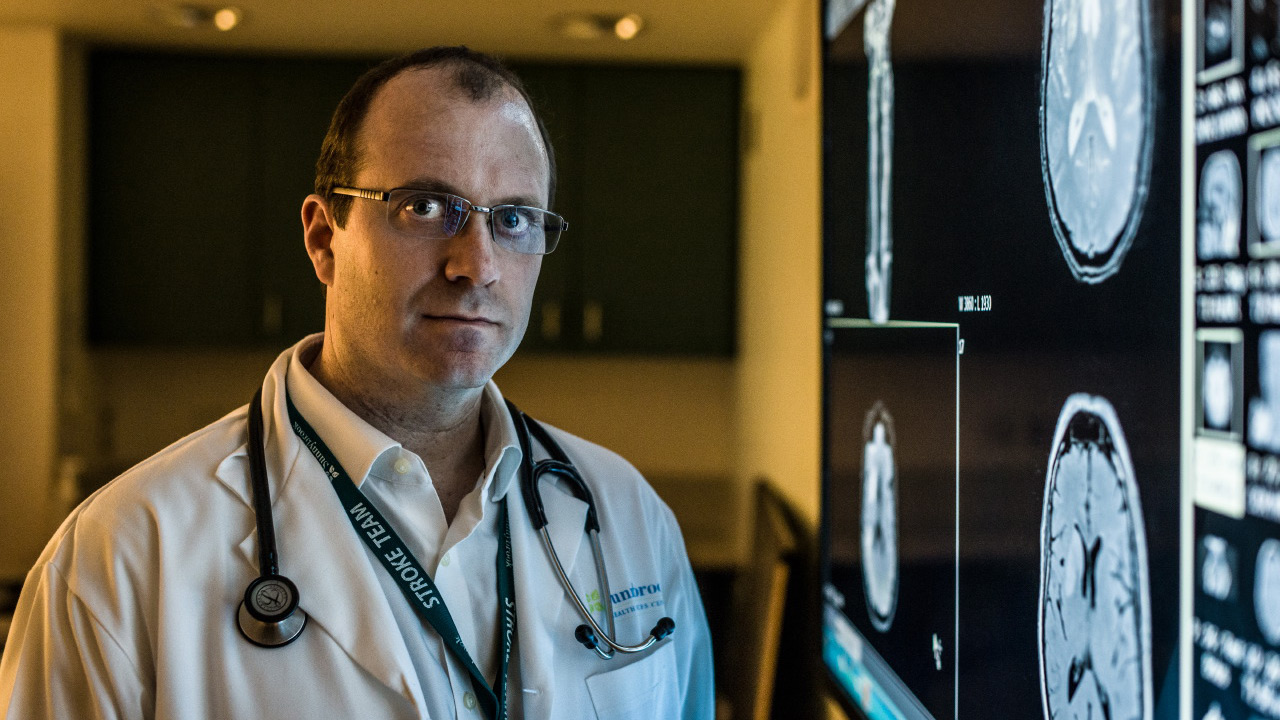Stroke in pregnant women three times higher than in non-pregnant women: study
Stroke in women during pregnancy is three times higher than stroke in non-pregnant women of the same age, according to a Canadian study published today which reveals that roughly 30 out of 100,000 women will experience a stroke during the pregnancy period. The highest risk occurs during the periods just before or following birth.
“Pregnancy can affect vascular risk factors, like diabetes or blood pressure, but many people don’t recognize there is an increased risk of stroke,” says study co-author Dr. Rick Swartz, stroke neurologist; medical director North East GTA Regional Stroke Program, director of the Stroke Research Unit at Sunnybrook, and assistant professor, Department of Medicine, University of Toronto. “Stroke is a leading cause of death and disability in adults and when stroke occurs as a complication of pregnancy, the impact on the mother, child and families can be devastating.”
Despite advances in stroke treatment, prevention and care, stroke remains a major cause of maternal death and a devastating cause of maternal morbidity around the world. Given the profound impact of stroke on women of childbearing age, their families and health systems, it is vital to have accurate rates of stroke in and around pregnancy to facilitate both clinical decision-making and health system planning.
What precisely increases stroke risk in pregnant women requires more study. However, early findings suggest hormonal changes and certain conditions like preeclampsia may increase risk. The condition — a sudden onset of very high blood pressure can be potentially life-threatening for moms-to-be and their babies if left untreated. High blood pressure is the number one risk factor for stroke but it can be managed.
There may also be geographic differences between countries that may reflect factors including genetics, health-care systems and other not-yet identified reasons. The meta-analysis identified a potential trend of lower event rates in some countries; seemingly those with more universal pre-natal care.
“All pregnant women are at a low, but increased risk of stroke,” says study co-author Dr. Patrice Lindsay, director of stroke, Heart & Stroke. “While all pregnancy-related stroke risk cannot be eliminated, there are things women can do to decrease their risk, including following a healthy diet, being physically active and smoke-free, managing blood pressure and stress and limiting alcohol consumption.”
The study found that pregnancy increases the risk of stroke for a number of reasons, including: pregnancy-related high blood pressure disorders (chronic hypertension, gestational hypertension, pre-eclampsia, eclampsia) and their complications (renal damage, HELLP syndrome), blood and blood clotting changes in the third trimester and post-partum periods, hyperemesis (persistent severe vomiting which can lead to dehydration) resulting in increased concentration of cells and solids in the blood, and changes to cerebral vasculature.
Regular follow up with one’s physician throughout pregnancy is especially helpful to monitor stroke risk factors such as pre-eclampsia, blood pressure and blood sugar, and to discuss any symptoms of concern.
While there was minimal evidence surrounding recurrence rates in subsequent post-stroke pregnancies, Dr. Lindsay notes that women who have had a previous stroke can get pregnant and should work closely with their health-care providers to ensure that their risks and prevention needs are addressed.Future research is needed to address this gap.
For media interviews, please contact
Diane Hargrave
dhprbks@interlog.com
416-467-9954, ext. 102
Nadia Norcia Radovini
Sunnybrook Health Sciences Centre
nadia.radovini@sunnybrook.ca
416-480-4040
» Read the full news release on the Heart & Stroke Foundation's website








